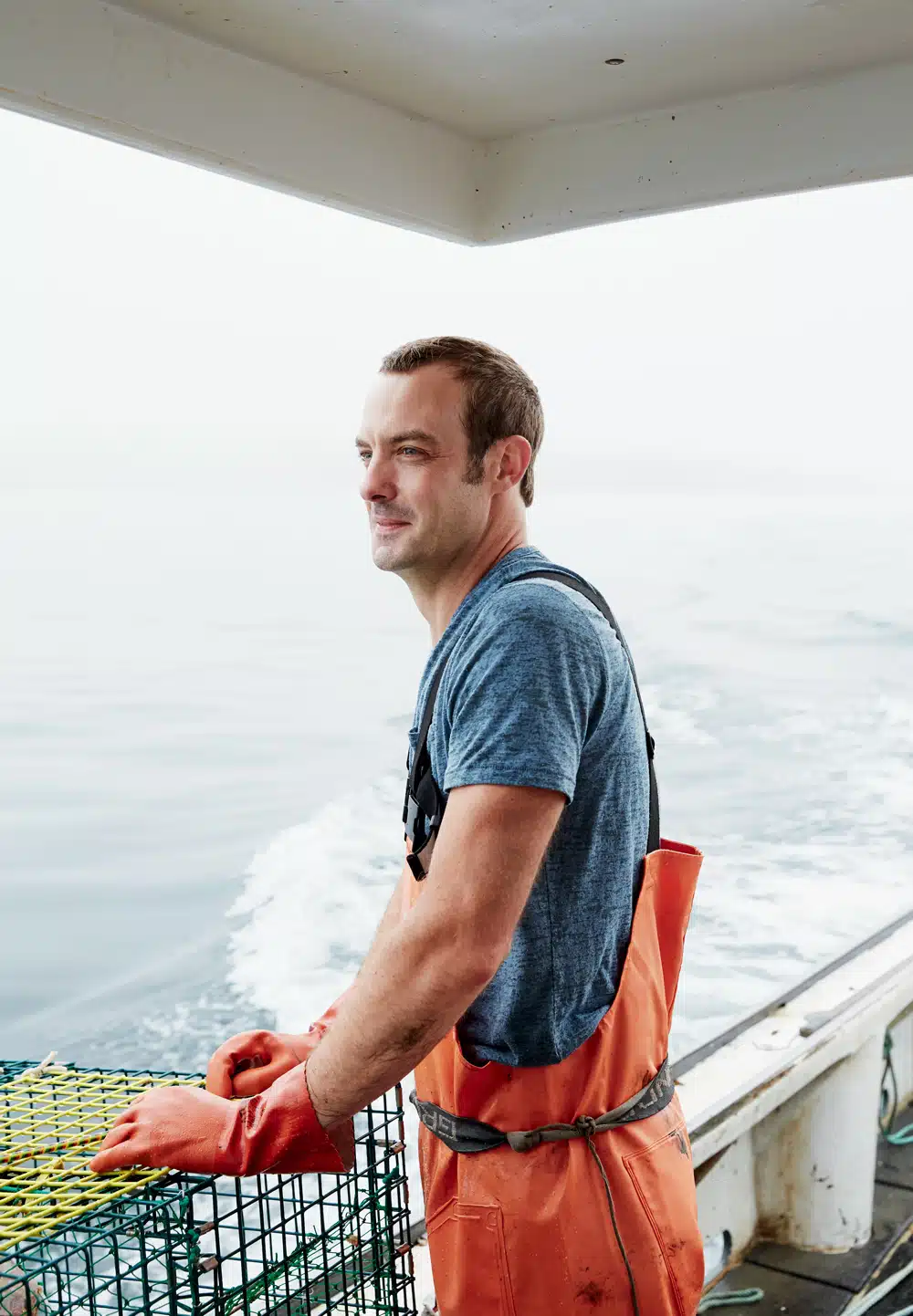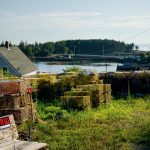5 Questions with Maine Seafood Expert Barton Seaver
Maine seafood expert and Weekends with Yankee guest Barton Seaver weighs in on seafood sustainability, the danger of overfishing, and the “right” way to make a lobster roll.

Coffee By Design | Portland, Maine
Photo Credit : Katherine KeenanBarton Seaver, 40, spent his early career rocketing to food-world fame as a Washington, D.C.–based chef focused on seafood and sustainability. Shortly after Esquire named him “Chef of the Year,” Seaver left the restaurant business for a National Geographic fellowship, studying how human appetites were changing the world’s oceans. In 2012, Seaver moved to New England to head up Harvard’s Seafood and Health Initiative at the Chan School of Public Health, settling in his wife’s home state of Maine. There, he continues to teach and write about sustainable seafood and has written eight books, most recently The Joy of Seafood, an encyclopedic collection of recipes for every kind of fish and shellfish. His goal: to redirect the public conversation away from scarcity and toward the power that each consumer has to make choices that protect both oceans and fisheries. As he said in a 2010 TED talk, “Sustainability is complicated, but dinner is a reality that we all very much understand.”

Photo Credit : Tara Donne
Yankee‘s Q&A with Maine Seafood Expert Barton Seaver
How did you go from being a restaurant chef to working for National Geographic?
National Geographic used to do a lot of its entertaining at my D.C. restaurants because of the environmental bent to the food there. I learned that it was launching an oceans initiative, so I asked for 10 minutes of the president’s time and presented my case that the initiative could be augmented by having someone solely focused on seafood and people and our relationship with the ocean. The response was “Great, you’re an explorer now.” And I said, “Cool, what does that mean?” and he said, “You tell us.” And so I figured it out, as explorers do.
How does seafood factor into a sustainable diet?
Seafood as a center-of-the-plate animal protein simply has a “fin up” when it comes to sustainability, because these animals live underwater in a more gentle environment, thus requiring less bone and less connective tissue. So there are efficiencies built into their existence by the environment in which they live. That’s not to say that properly raised land animals should not be a part of our diet, but when we’re looking at how we feed billions, we should always be looking to efficiencies, and seafood has those in abundance.
But what about the danger of overfishing?
In the United States and New England, specifically, we have the leading global example of fisheries done right. Not that we can’t always improve, but it is widely recognized that the systems by which the U.S. manages its seafood are sustainable.
Plus, there is a broad diversity of species that fit our current culinary preferences. They’re caught in fisheries but do not come close to reaching their capacity in terms of production. Whiting, dogfish, haddock, pollack, hake, mackerel, Acadian redfish—each of these represents a major opportunity. It’s on us as consumers to create the market.
Why did you choose to move to Maine?
It’s delicious, for one. And Mainers have a particular cadence to their lives, to their humor, that we particularly like. Life is calm. People don’t give a damn about who you are or what you’ve done. They care first about the fact that you’re their neighbor. That’s what matters most.
Lastly, the lobster roll: cold with mayo or hot and buttered?
I appreciate both but prefer mayo. Come on! Hot with butter is as much New England as rooting for the Yankees.





Nice to no we have smart people leading the charge. We must keep are ocean has clean as possible